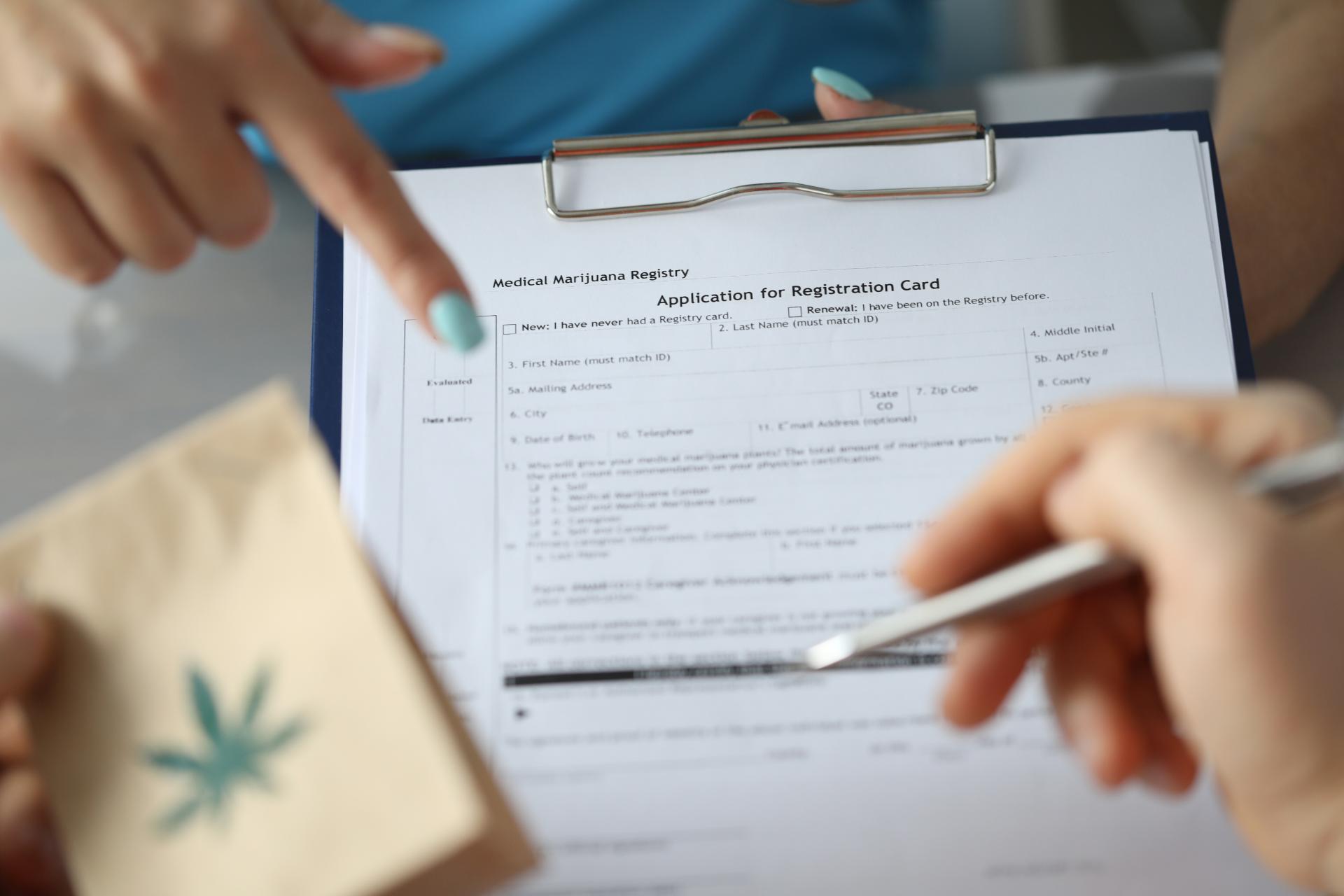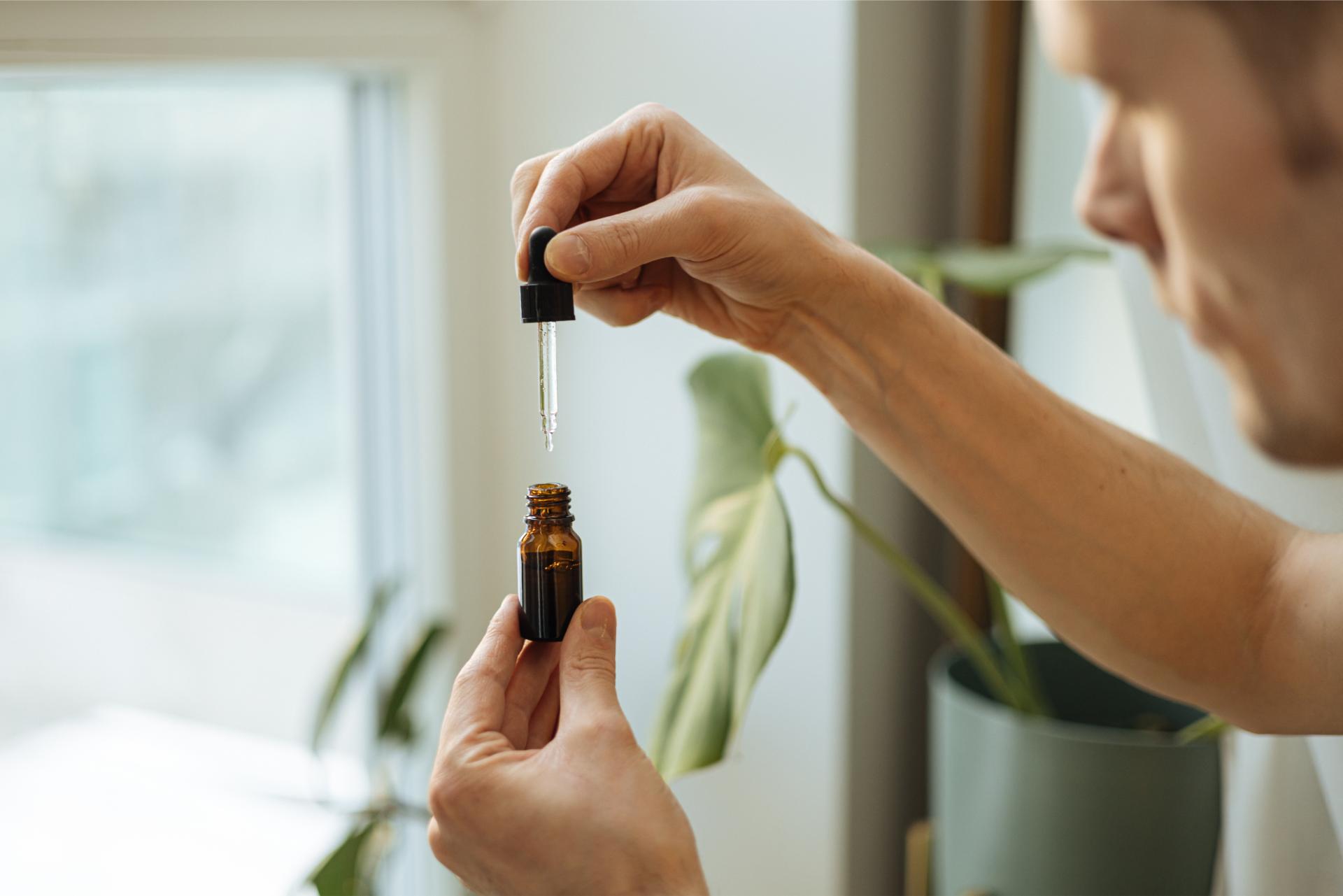Medical vs Recreational Cannabis: What’s the Difference?
If you’ve been hearing people talk about medical vs recreational weed, you might be wondering what actually sets them apart.
You’ve probably seen both terms on dispensary menus, but it’s not always clear how they differ in legal status, chemical content, and the way people use them.
Knowing these differences matters—especially if you’re buying cannabis for the first time or trying to decide which option fits your needs best.

What Is Medical Cannabis?
Medical cannabis are cannabis products prescribed or recommended by medical professionals to treat the symptoms of specific medical conditions. These products are regulated by the states, and most often, you will need a medical cannabis card to purchase them.
Patients use medical cannabis for a variety of reasons, including:
- To Manage Chronic Pain – Many patients have turned to medical cannabis use instead of continued short- and long-term prescription opioid use, especially for conditions related to arthritis, back pain/injuries, or fibromyalgia.
- To Reduce Chemo-Related Nausea – Some strains and formulations of cannabis are known to reduce the queasiness and vomiting related to cancer treatments, allowing patients to have a better recovery experience.
- To Improve Appetite for HIV/AIDS Patients – Medical cannabis has the ability to improve appetite, increasing chances of maintaining a healthy weight and making sure they meet their nutritional needs.
- To Treat Symptoms Related to Neurological Conditions – For conditions like epilepsy and multiple sclerosis, cannabis may reduce the number of seizures, muscle spasms, and alleviate other distressing symptoms.
One of the defining traits of medical marijuana is controlled cannabinoid content. Products may be formulated with higher cannabidiol (CBD) levels and lower tetrahydrocannabinol (THC) to reduce psychoactive effects while still offering relief.
However, some medical strains have high THC levels if that’s what’s most effective for the patient’s condition.
Medical marijuana is sold at licensed medical marijuana dispensaries, where trained staff can guide patients toward the best options for their qualifying condition.

What Is Recreational Marijuana?
Recreational marijuana is simply cannabis that is sold for personal enjoyment instead of a specific diagnosis. People can buy recreational marijuana provided that they’re age-qualified in countries or states that permit recreational cannabis.
Recreational cannabis is typically sold at recreational cannabis dispensaries, which may have their own individual licenses and have different rules than medical-only locations.
People may choose to use recreational cannabis occasionally, for one of the following scenarios:
- Relaxation after a hard day’s work.
- To socialize with friends.
- Creative stimulation.
- To enhance a movie, music or outdoor experience.
Unlike medical marijuana, recreational cannabis is primarily grown to market and taste for flavor, aroma, or higher THC content. Recreational cannabis is not marketed for treating a medical condition.
Key Differences Between Medical and Recreational Weed

When comparing medical marijuana vs recreational cannabis, the biggest differences usually come down to potency, cannabinoid balance, legal access, and cost.
Let’s take a more detailed look at the primary differences.
THC and CBD Content
One of the biggest differences in recreational vs medical weed is cannabinoid content levels.
Medical marijuana may have higher CBD levels, although some strains may have high THC levels, on occasion, to target symptoms, but still without a heavy “high”.
Recreational marijuana tends to have higher THC levels for more impactful psychoactive effects while downplaying CBD levels.
Pro Tip: If you’ve ever wondered what is the difference between medical marijuana and recreational marijuana, one of the clearest answers lies in their THC and CBD ratios.
That being said, there is some crossover. Certain medical patients have a greater response to products containing high THC levels, whereas some recreational users prefer the more balanced THC:CBD strains for a gentler experience.
Cost and Taxes
Another clear distinction is the cost between medical marijuana vs recreational marijuana.
Medical marijuana is often and usually taxed less, and in some states exempt from certain sales taxes altogether. On the contrary, recreational marijuana has higher taxes that can greatly increase the final cost.
If you are a patient who uses cannabis on a continuous basis, the medical card will typically save you long term.
Age Restrictions

Rules are strict when it comes to age restrictions: medical marijuana is available to patients under 21 if they meet the eligibility requirements and have consent from a parent or guardian.
Recreational cannabis is only legal for adults aged 21 and over in most legal states.
This means that younger patients who need their cannabis for medical reasons must navigate the formal medical process.
Legal Access and Documentation
One of the biggest points in what is the difference between medical marijuana and recreational marijuana is how you receive it.
Medical marijuana requires a doctor’s recommendation and qualifying diagnosis along with a valid medical cannabis card.
Recreational marijuana can be purchased by any adult of legal age in a state where it is legal, with no documentation at all.
State laws vary, however, in some states medical cannabis patients may have possession limits larger or may be able to grow more plants, for personal use at home, than medical patients.
Availability and Formulations
Medical and recreational cannabis products often look the same—flower, edibles, tinctures, concentrates—but the range of formulations will be different.
Medical marijuana dispensaries might have formulations targeting specific conditions, such as high-CBD oils for epilepsy or low-THC capsules for seniors.
Recreational cannabis dispensaries typically will have a wider variety of strains, flavors, and novelty products intended for enjoyment and not symptom relief.
Which One Is Right for You?

Whether or not you choose medical vs recreational weed depends on your objectives.
If you have a qualifying condition and want to have consistent, regulated access to cannabis, then medical marijuana is likely the best route. You will have the benefit of tailored products, lower taxes, and possibly higher possession limits.
If you are looking for cannabis strictly for enjoyment, then you can access recreational cannabis as long as you live in a legal state, and you will have immediate, no-paperwork access.
A few factors to consider are your health conditions, desired effects, and your budget. Many states also legally allow people who qualify for medical marijuana to also purchase recreational marijuana from a recreational cannabis dispensary, however, this is not always true.
FAQs About Medical vs Recreational Weed
Can You Use Recreational Weed for Medical Purposes?
Yes, but it might be somewhat limiting. Recreational cannabis can provide symptom relief, but without the support you would get from a medical marijuana dispensary to ensure the appropriate cannabinoid levels and formulations for your medical needs, you lose the benefits. Medical patients will also have access to products that are developed for medical use, plus professional support.
Do Medical Weed Products Have Higher Levels of CBD?
Usually, yes. Most medical products have been developed with higher levels of CBD to lower psychoactive effects, and potentially increase therapeutic effects. However, not all medical patients require products with high levels of THC, so the CBD level is not the only consideration.
Is Medical Weed Safer Than Recreational?
Safety is dependent upon the user, the product, and the source. Medical cannabis is tested for potency and purity; regulated medical claims reduce the risk of contaminants. Recreational cannabis in legal states is regulated as well, but usually with a focus on THC strength instead of specific medical effects.
Is There a Quality Difference Between Medicinal and Recreational Marijuana?
Either one can be of great quality, but we typically find the medical to be much more focused on development and testing; the medical focus can extend to specific testing requirements, very precise labeling, and even dedicated product development. Recreational products focus on taste, aroma, and potency. States will permit either product within state-regulated guidelines, but medical-grade products typically have higher-level requirements.
Final Take on Medical vs Recreational Weed
At the end of the day, medical vs recreational weed isn’t about which one is “better” overall—it’s about what’s better for you.
Medical marijuana can help people with certain conditions get targeted relief, pay lower taxes, and get professional help. Adults can use recreational cannabis for fun without having to show a doctor’s note.
If you’re not sure where to start, you could go to both a medical marijuana dispensary (if you can) and a recreational cannabis dispensary in your area to compare products and get advice.
References
- UK Government. (2018). Government announces that medicinal cannabis is legal.
- (n.d.). Medicinal vs. recreational weed: What’s the difference?
- Centers for Disease Control and Prevention (CDC). (n.d.). State medical cannabis laws in the United States.
- Mayo Clinic. (n.d.). Medical marijuana: What you need to know.
- Government of Canada. (n.d.). Medical cannabis under the Cannabis Act.
- NYC Health. (n.d.). Marijuana: Dispensary rules & regulations in New York City.





